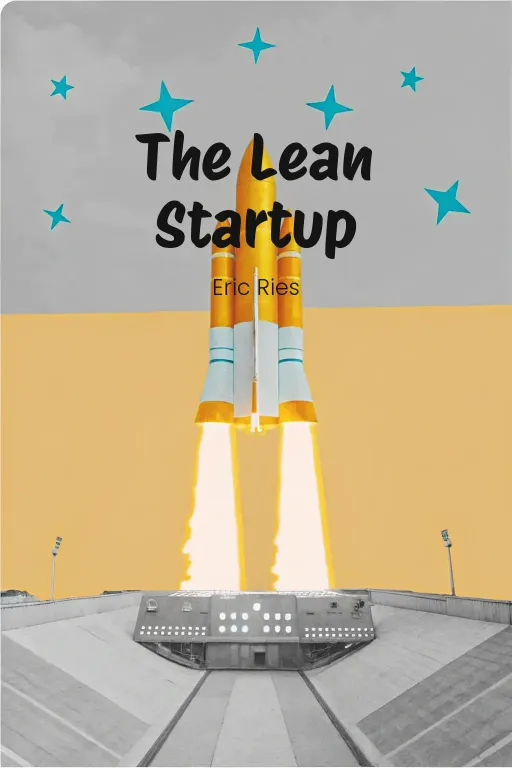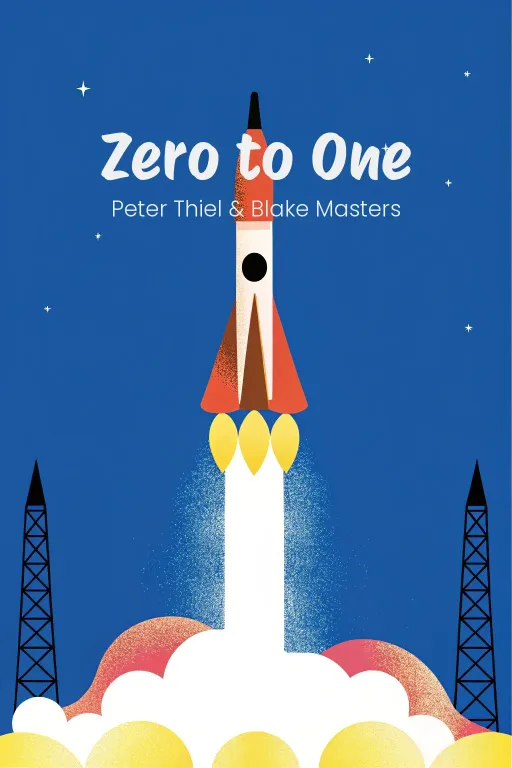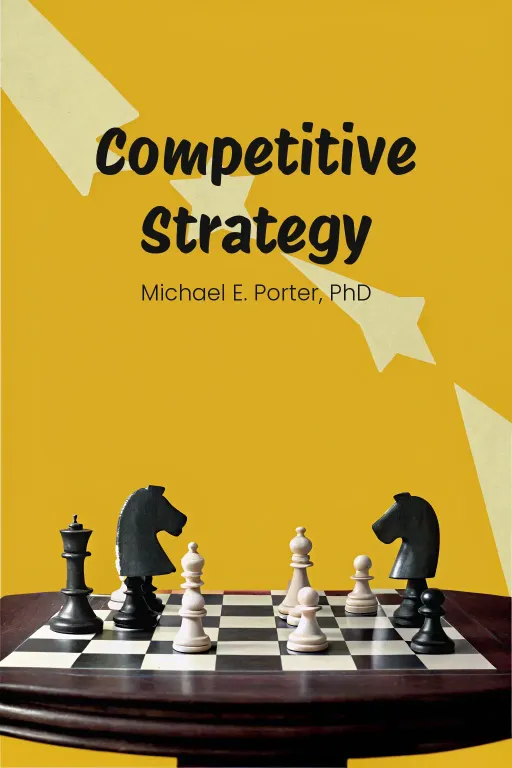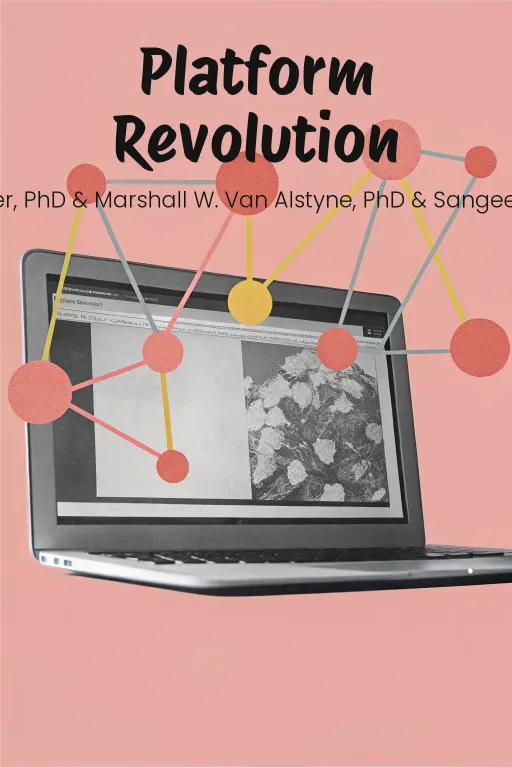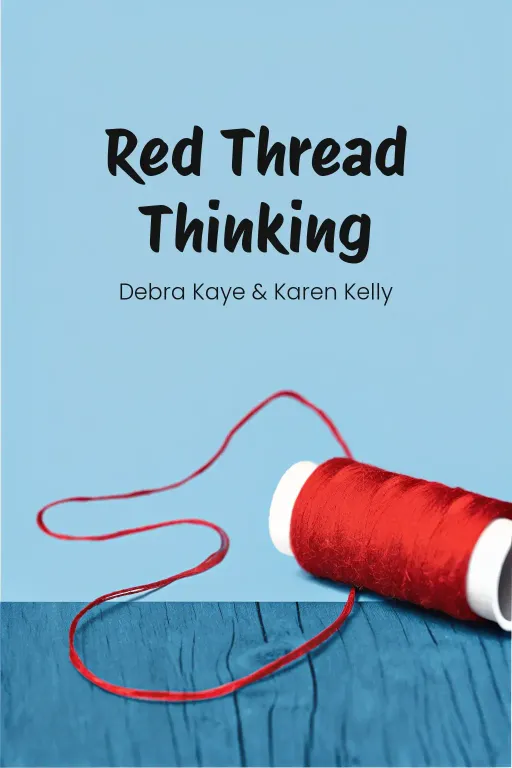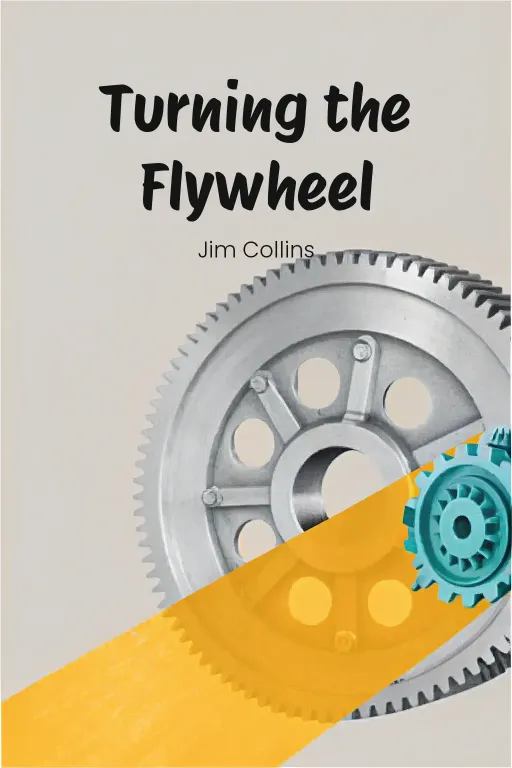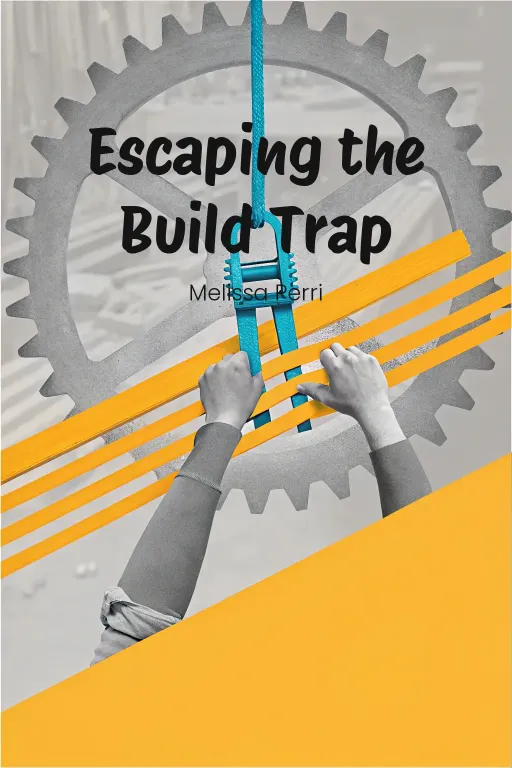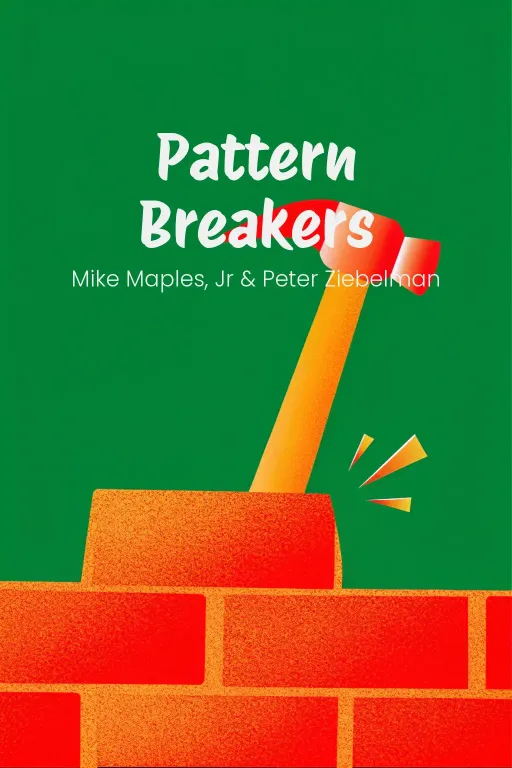
Startup Game Changers: Spotting Future Trends
Podcast by Let's Talk Money with Sophia and Daniel
Why Some Start-Ups Change the Future
Startup Game Changers: Spotting Future Trends
Part 1
Daniel: Hey everyone, welcome back! Today, we're diving deep into what makes some “out there” ideas become world-changing companies, while others just… fizzle out. Sophia: Ah, let me guess – another story about someone who turned their garage into a billion-dollar empire? The usual Silicon Valley fairytale? Daniel: Well, it's more than just that, Sophia. We're talking about pattern breakers. These are startups that don't just play by the rules, they redefine them. It’s all inspired by the book Pattern Breakers: Why Some Start-Ups Change the Future by Mike Maples Jr. and Peter Ziebelman. The book talks about companies like Airbnb and Twitch, these companies didn't just make existing industries a bit better—they completely flipped them by noticing major changes that everyone else missed. Sophia: So, it’s not just about being lucky, right? It's about seeing something that others are blind to, and then actually doing something about it. Daniel: Precisely! And here's what we're going to unpack: First, we'll look at the sparks that ignite innovation—things like inflections, these big tech or cultural shifts, and the insights, those hidden truths that lead to groundbreaking ideas. Then, we'll explore the bold strategies startups use to actually turn those seemingly impossible ideas into reality. And finally, we'll see how founders break away from the pressure to conform, you know, and really push their crazy, brilliant ideas into the world. Sophia: So, it's about juggling vision and chaos while everyone else is playing it safe. Sounds like a blast. Where do we start?
Inflections and Insights
Part 2
Daniel: Okay, Sophia, let’s dive in. We're talking about inflections and insights, right? Maples and Ziebelman basically say these are the make-or-break factors for startups that “really” change the game. Inflections are those huge external shifts—like the internet taking off, smartphones becoming a thing, or now, the AI boom. They’re the big changes that create new opportunities out of nowhere. Sophia: Got it. And insights are the internal "aha!" moments, those hidden truths that founders see before everyone else, yeah? It's when someone steps back and goes, "Wait a minute, there's this weird, counterintuitive thing that could actually work." Daniel: Exactly! Picture this: an inflection is like a massive wave in the ocean. It’s this huge force of nature that can carry you super far if you catch it just right. But an insight? That’s your surfboard. Without it, you’re just getting hammered by the wave. Sophia: Okay, Daniel, let's get concrete. Airbnb, everyone uses them as the golden example. How did they actually fit this inflection/insight model? What was their inflection, and what was their insight? Daniel: Airbnb is perfect because they nailed both. So, their inflection—the external shift—was actually a mix of things back in 2007. The financial crisis had just hit, so everyone was scrambling to save money or make some extra cash. Plus, tech had gotten to the point where these peer-to-peer platforms were actually possible, they could actually facilitate this new trust-based economy. And then you had this growing social shift, especially among young people, who started “really” valuing experiences over just owning stuff. Sophia: Right, so people were suddenly way more open to renting out their spare room, or, you know, crashing in someone else’s place. Daniel: Exactly. But, here's where the insight comes in: Chesky and Gebbia didn’t stop there. They realized something crucial—people would only use a platform like this if they “really”, “really” trusted it. This wasn’t just about the money, right? It was about carefully building a safe and credible community for both hosts and guests. That’s why Airbnb focused on things like the review system, user profiles, and making sure everything felt legit. Sophia: Wow. So their insight wasn’t just, "People will stay with strangers." It was, "We can make staying with strangers feel normal, even good, by, like, designing trust right into the system." Daniel: Nailed it. That shift in thinking—turning mistrust into a design challenge—was revolutionary. And look at them now - Airbnb totally changed the hospitality game. Sophia: Okay, that makes a lot of sense. So the inflection was economic pressure and shifting values. And the insight was…trust as a key design element. I'm with you. But what happens when someone spots an inflection, but their insight is totally off? Daniel: Great question! That’s why it’s so important to “really” "stress-test" your ideas. You can’t just jump in hoping you’re on the right track. You've got to ask the tough questions—"Why now? Why is this a big deal now, not five years ago? And who is so desperate for this solution that they'd pay for it?” Sophia: Like, if you build a rideshare app for Mars, I get it, you spotted interplanetary travel becoming a trend. But…nobody lives on Mars yet! Timing is everything. Daniel: Exactly! And sometimes, there’s an inflection hiding in plain sight. Take Twitch, for example. Their story is wild because they started with something completely random—Justin.tv, where the founder just streamed his life 24/7 with a webcam. Sophia: Please tell me he got bored with that fast. Daniel: He did! Luckily. But here’s where their insight comes in. They noticed these gamers who were live-streaming their gameplay and building small, passionate communities, right? Their inflection? The rise of broadband, gaming becoming super popular, and everyone wanting to connect online. Sophia: And their insight was realizing that people didn’t just want to play games themselves, they wanted to watch, talk, and obsess over games with other fans. Daniel: Exactly! Twitch used that insight to switch from a general streaming site to a dedicated platform for live gaming. They didn’t just follow the trend, they amplified it. And now they’re transforming entertainment. Sophia: That's genius. But it sounds exhausting, right? You’re basically asking founders to be trend forecasters, sociologists, and psychologists all at once, while they're trying to build a company. Daniel: It is a lot, but that’s why truly groundbreaking ideas are so rare. And that’s why founders need tools to handle all this complexity. Think about market research and customer feedback, for example. Twitch and Airbnb both listened to their users super carefully and watched how their behaviors were changing. Sophia: And they weren’t afraid to scrap Plan A when it wasn’t working. Justin.tv didn’t keep streaming the founder’s personal life out of sheer stubbornness. Daniel: Exactly. Being adaptable is key. Founders have to be willing to change their assumptions as they learn more. That’s what separates the disruptors from everyone else. The ability to see those inflections, pair them with sharp insights, and go for it, without, you know, being afraid of failing or getting rejected. Sophia: So, to recap: ride the wave, but bring your surfboard…and some guts, too.
Pattern-Breaking Actions
Part 3
Daniel: Understanding these concepts really lays the foundation for how startups can spot and leverage major opportunities. Now, let's switch gears and talk about what happens after you’ve identified that inflection point and had your insight. Turning those bold ideas into reality takes more than just vision, it's about what Maples and Ziebelman call “Pattern-Breaking Actions”. Sophia: Ah, so now we're moving from theory to how you actually do it, right? Translation: "Great idea, but how do you even begin to make this work in the real world?" Daniel: Precisely. It builds on what we’ve been discussing, but focuses on execution. Namely, how startups take insights that they have and transform them into disruptive realities. There are three major strategies here: forming agile and mission-driven teams, harnessing early customer feedback, and using iterative prototyping to refine your approach. Sophia: So, it's basically being scrappy and flexible, while pushing back against the inevitable chaos, right? Daniel: Pretty much! Let’s start with building the right team. The book likens startup teams to jazz ensembles...which I thought was so cool when I read it. They’re not rigidly structured like an orchestra, but agile and responsive, with each member adding something unique. Sophia: Okay, but here’s my concern. Jazz only works if everyone's super talented and can actually hear each other. Startups have to deal with egos, burnout, and people not carrying their weight. How do they manage that on top of all the, ya know, unpredictability? Daniel: That's a fantastic question. The book says the key is mission alignment. It’s not just about finding the smartest people, it’s about finding those who are deeply committed to your vision. Think of them as co-conspirators, if you will. Take Twitch, for instance. As they pivoted from Justin.tv to gaming, the team was super focused on understanding their audience. They hired people who got it, people who resonated with the culture of gaming and live interaction. Sophia: So, they didn’t just bring in developers to write code, but gamers who could actually influence the product direction? Daniel: Exactly. That highlights the second part: hire not just for skills but for perspective and passion. On top of that, team culture is non-negotiable. It's the ability to trust each other, to communicate transparently... Friction is inevitable, but if it’s channeled correctly, it pushes ideas forward, rather than tearing the team apart. Sophia: So... no huge egos, no repeats of the same personality type, and everyone’s got to be on the same page. Seems a bit like a casting call for Survivor: Startup Island, doesn't it? It's gotta be very carefully curated. Daniel: In a way, yes. Iteration—which is constantly reassessing and reshaping the plan when new challenges or opportunities arise—is what keeps a team agile. Which brings us to the next strategy: working closely with early customers to uncover those hidden truths. Sophia: Ah yes, early adopters. Everyone talks about them. Aren’t they just the ones who buy the half-baked product and call it innovation? Daniel: Well, that’s a bit of an oversimplification. Early adopters play a critical role in shaping the final product. They’re not just customers; they’re collaborators. Take Mosaic, the first widely used web browser, for instance. Sophia Andreessen and his team knew they had something revolutionary, but it was user feedback that helped them refine the interface and functionality. Early adopters pointed out what they needed to navigate this brand-new thing called the internet. Sophia: So, people were probably saying, "Hey, I need an address bar or a way to bookmark pages" because this whole worldwide web thing was like trying to explore outer space without a map? Daniel: Exactly! Those users didn't just want a tool, they wanted something intuitive and useful. By listening and adapting to their needs, Mosaic didn’t just release a browser; they created the gateway to the internet. That's what the book emphasizes: early adopters reveal insights you don’t know you need. Sophia: But is it risky? You're putting your fragile product in front of people who might just tear it apart. Daniel: True, but that’s the point, actually. Early adopters are often more forgiving than the mass market because they want your product to succeed. They’re emotionally invested in the promise of what you’re building, and that trust can create a deep bond. But you have to listen. If they’re saying it isn’t working, you need to see it as an opportunity—not a failure. Sophia: Got it. The feedback might sting, but it’s the compass pointing you in the right direction. Daniel: Spot on. And that carries into our final strategy: iterative prototyping. Startups often aim for perfection right away but, according to the book that’s a recipe for disaster. Instead, you build fast, test fast, and adapt faster. Look at Chegg. Before they were the billion-dollar education platform we know today, they tested textbook rentals with a minimum viable "Textbookflix" prototype. Sophia: So, instead of setting up a giant infrastructure and assuming students would rent books, they ran a little test on a small scale instead? Daniel: Exactly! They just wanted to see if students would bite. The prototype wasn’t elaborate, it was practical. They collected valuable data about demand and pricing almost overnight, which gave them the confidence to build it out further. Sophia: Let me guess. The data didn’t just confirm the concept, it also revealed insights they wouldn’t have otherwise considered. Daniel: Nailed it. For instance, they realized students were willing to pay more for rental access than they’d anticipated. And that changed everything about their revenue model. Sophia: Wow. So, by staying nimble they avoided a massive sunk cost. Plus, hearing directly from your users makes them feel like they’re copilots on the journey! Daniel: Exactly! And that fosters goodwill and loyalty, which can be invaluable for startups. The beauty of iterative prototyping is that even when you fail, you’re learning something critical. And when it works, your product is stronger and more aligned with market demands. Sophia: All right, so to recap for our listeners: build a jazz-band team, tap into your early adopters for brutally honest but golden feedback, and always prototype fast. You’ll fail a bit, but those failures are the steppingstones to breakthrough innovation. Daniel: That’s it in a nutshell. Pattern-breaking success isn’t about chasing perfection; it’s about creating momentum through adaptability and learning. These startups don’t just follow a map, they draw it as they go, changing the game for everyone else.
Overcoming Societal and Corporate Barriers
Part 4
Daniel: Okay, so building on those inflections and insights, let’s dive into how startups actually turn these wild ideas into reality. It’s where strategy hits the ground running. The interesting part is, it's not just about internal stuff, you know? We're talking about external barriers, like societal norms and big company inertia, that push back against innovation. Sophia: Ah, you mean skeptical regulators and risk-averse CEOs – the outside world basically telling startups, "No thanks, we're good." Daniel: Exactly! And it’s absolutely crucial, because overcoming these hurdles is what distinguishes a game-changing idea from one that just…flops. It gives us a broader view of what’s blocking innovation and how to smash through it, completing the whole journey from idea to impact. Let’s start with what the book calls the "conformity trap." Sophia: Let me guess, this is where startups get sucked into playing by the established rules? Like, trying to be innovative but still following the same old playbook? Daniel: Perfectly put. The conformity trap is all about the pressure—whether from society, corporations, or even yourself—to stick with what's familiar. It's why institutions, and people too, default to safety and predictability. You see it everywhere from schools that value rote memorization over creativity to companies where rocking the boat is a career killer. Sophia: Right, pushing the status quo is risky. Nobody wants to be the one suggesting something radical, like, "Hey, what if we actually do things differently?" Daniel: Precisely. And it's not just startups – big corporations get hit, too. But the book has this great example of escaping the conformity trap: Lyft. When they launched, ridesharing was pretty much unheard of. They weren't just launching a new service, they were challenging established norms about transportation. Taxis had been the standard forever, and regulations were built around that. Sophia: Oh, that must have ruffled some feathers, like taxi unions and city regulators. I can almost hear them now: "You mean anyone with a car can pretend to be a professional driver?" Daniel: Oh, there was definitely an uproar! Lyft knew they were stepping into hostile territory. But, here's what they did: they focused on delivering value to users, first and foremost. They poured their energy into building a community of customers who loved the idea of convenient, affordable rides. That community generated goodwill and, frankly, made them hard to ignore when regulators pushed back. Their service became so popular, officials had no choice but to figure out how to regulate it instead of just banning it. Sophia: So, instead of asking permission, they went with the "ask forgiveness later" approach. Bold move. Daniel: Bold, yes, but also calculated. Lyft didn’t just bulldoze through the barriers. They built trust with their users, who became their advocates. Huge lesson there: customer support can be the most effective weapon against systemic resistance. Sophia: Okay, but how do you avoid falling into the conformity trap in the first place? Especially for founders who don't yet have a huge customer base? Daniel: Great question. The book outlines three key strategies. First, always challenge your assumptions. Ask yourself and your team: "What rules or norms are we just taking for granted? What mental models are we copying without realizing it?" The idea is to unearth those unconscious biases that make you stick with the status quo. Sophia: Like, "Why are we still measuring success by revenue alone when engagement or loyalty might be a better metric?" That kind of thing? Daniel: Exactly! Second, embrace pilot projects or beta versions. It's like testing the waters, you know? Get your idea out there in its simplest form and prove it works before anyone can block you with institutional inertia. Lyft's early campus launches are a classic example. Sophia: Got it. And number three? Daniel: Number three is creating what they call "constructive discomfort." This is about fostering a culture where it's okay – expected, even – for people to challenge each other. When your team feels like they always have to agree, you're reinforcing conformity. But when they can debate and push boundaries comfortably, new ideas thrive. Sophia: So, you're saying disagreements can be healthy, if handled right? Iron sharpens iron, as they say. And speaking of disagreements, that actually ties into something else I noticed in the book: dissent. Where does disagreement fit into tackling these barriers? Daniel: That’s such a massive point. The book makes a really strong case for using dissent as a tool for innovation. When everyone agrees too easily, you're probably missing perspectives, which could improve your idea or reveal weaknesses. Sophia: Let me guess – this is where Bill Gates and his famously intense management style come in? Daniel: Exactly! At Microsoft, Gates was notorious for relentlessly challenging ideas. In meetings, he'd openly question everything, even the senior team’s most well-prepared pitches. It wasn't always comfortable, but it ensured that ideas were thoroughly tested. Sophia: And Microsoft ended up dominating personal computing, software, and everything else. So, that proves creating space for dissent can lead to breakthroughs… if you’re not afraid of a few bruised egos along the way. Daniel: Right. But it's also about how you handle dissent. It's not about stirring up conflict just for the sake of it. Intellectual honesty and psychological safety are key. People need to feel valued, even when they're being challenged. And dissent should always tie back to a shared mission; otherwise, it just creates chaos. Sophia: Psychological safety sounds great in theory, but I imagine it’s harder to build in practice, especially if people take criticism personally. Daniel: Definitely. But leaders set the tone by modeling intellectual honesty themselves. If they’re open to feedback and admit when they're wrong, it has a ripple effect. Which leads nicely to leveraging inflections. Sophia: Oh, right – the big shifts in tech, society, or regulations that force everyone to rethink everything. Daniel: Exactly. But established companies often get stuck here. They're too tied to past successes to recognize an inflection or too slow to act on it. That's why innovative partnerships can be so powerful. Look at United Airlines and Boom Supersonic. United didn’t try to build supersonic jets themselves. Instead, they partnered with Boom, a startup already tackling it. Sophia: So, instead of competing with the new kid in aviation, they hitch their wagon to Boom's vision and say, "We're in." Smart. Daniel: Exactly, it lets United position itself at the forefront of innovation while spreading the risk. Boom, meanwhile, gets access to United's expertise and market. It’s a win-win! The takeaway is clear—when you’re facing a huge inflection like technological disruption, sometimes the best way forward isn’t to go it alone. Strategic partnerships can be the key to breaking out of stagnation. Sophia: Right, so to recap – escape conformity by questioning everything, embrace dissent to strengthen your ideas, and align with big inflections to stay ahead of the game. Makes sense. Anything else we should cover? Daniel: Well, that really hits the main points. Whether it’s Lyft disrupting transportation, Microsoft cultivating a culture of debate, or United Airlines pushing the boundaries of flight, the lesson is the same: breaking through societal and corporate barriers requires conviction, adaptability, and bold action. That’s how you make the leap from concept to real-world impact.
Conclusion
Part 5
Daniel: Okay, so let's recap. We've talked about how truly disruptive startups spot those inflection points... those big shifts in technology, culture, regulations, whatever... and then use “really” sharp insights to come up with totally new ideas. And then we looked at how they knock down the barriers, both inside their teams and out in the world, by staying flexible, encouraging different opinions, and taking smart, calculated risks. Sophia: Yeah, it's like seeing those opportunities that everyone else misses, choosing the right surfboard to ride the wave, and then, you know, having the confidence to basically redraw the map as you go. Think about Airbnb, Twitch, Lyft... they all have this in common: they didn’t just follow the rules, they made their own. Daniel: Absolutely. And for our listeners, the key thing to remember is this: What inflection point are you missing? What's that hidden truth that you could turn into a game-changing idea? And what existing cultural or institutional barriers are you prepared to challenge? Innovation isn't about playing it safe; it's about seeing the world from a totally different angle and having the guts to do something about it. Sophia: Precisely. Break a pattern, bend a rule, challenge an assumption... that’s where the real innovation happens. So, until next time, keep shaking things up!
